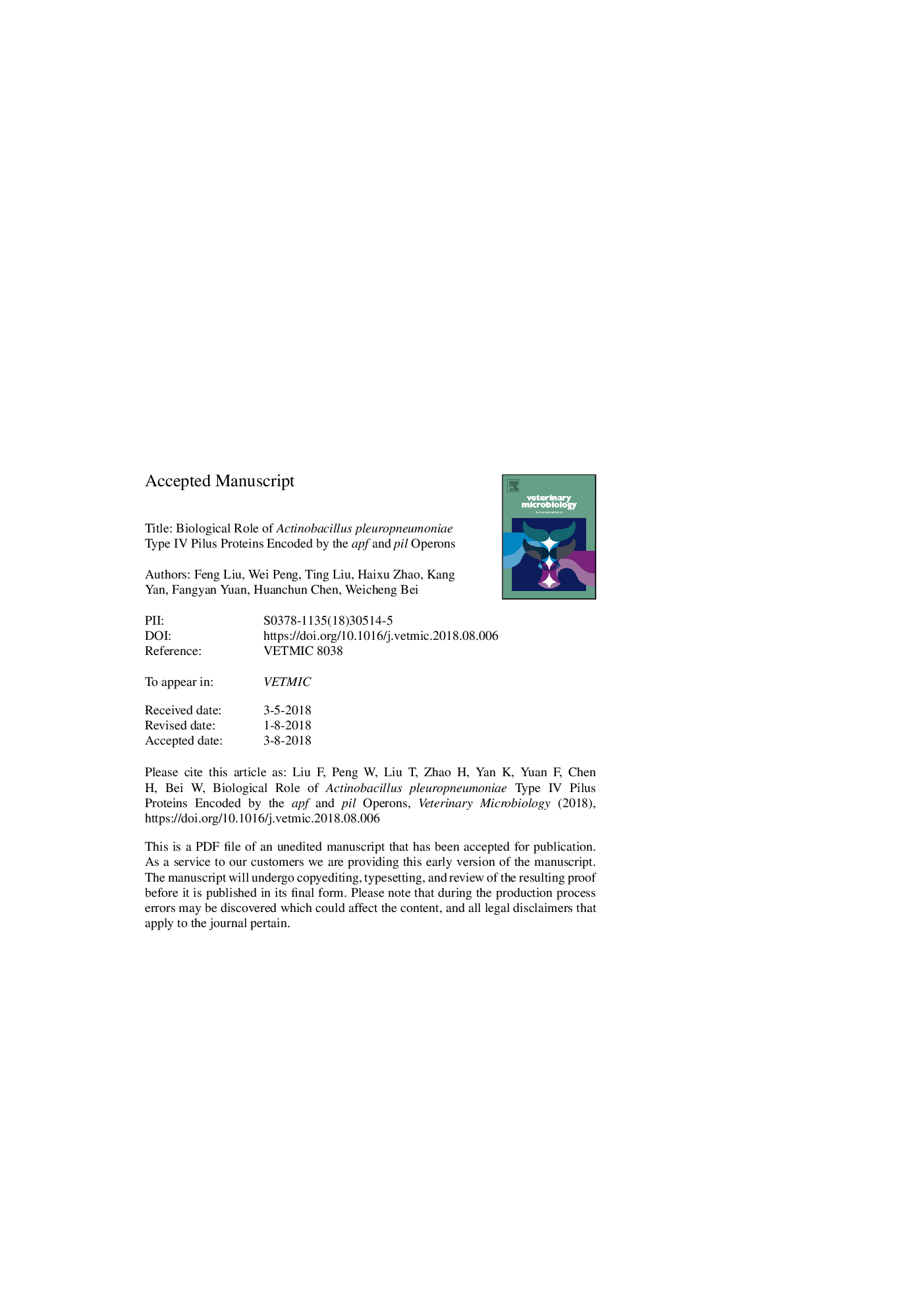| Article ID | Journal | Published Year | Pages | File Type |
|---|---|---|---|---|
| 10137377 | Veterinary Microbiology | 2018 | 27 Pages |
Abstract
Actinobacillus pleuropneumoniae is a species of Gram-negative bacteria that colonizes the respiratory tract, causing porcine pleuropneumoniae. Given the high agricultural impact of this disease, a detailed understanding of the pathogenesis of A. pleuropneumoniae is crucial. Previous work found that only the apfABCD (apf) operon encodes type IV pili (Tfp), which promotes bacterial adherence to host cells, in A. pleuropneumoniae. However, the detailed biogenesis and function of Tfp in A. pleuropneumoniae remained unclear. Here, we found that the apfABCD and pilMNOPQ (pil) gene clusters are operons, and the products of each gene within the apf and pil loci are required for Tfp biogenesis and function. Sequencing analysis revealed that the apf and pil operons are highly conserved among different serotypes of A. pleuropneumoniae. Our data demonstrate that the transcription of the pil operon was greatly upregulated upon bacterial contact with host cells. Mutants with single deletions of each gene in the pil and apf operons had defective adherence when they were in contact with host cells and, additionally, these mutants were also deficient in biofilm formation in vitro. In conclusion, these results indicate that the products of each gene within the apf and pil operons are necessary for the normal biogenesis and function of Tfp in A. pleuropneumoniae.
Related Topics
Life Sciences
Agricultural and Biological Sciences
Animal Science and Zoology
Authors
Feng Liu, Wei Peng, Ting Liu, Haixu Zhao, Kang Yan, Fangyan Yuan, Huanchun Chen, Weicheng Bei,
